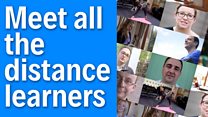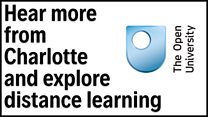Unit 5: Go The Distance: Finding and using source material
Select a unit
- 1 Go The Distance: Choosing distance learning
- 2 Go The Distance: Academic reading
- 3 Go The Distance: Academic talk
- 4 Go The Distance: Academic writing
- 5 Go The Distance: Finding and using source material
- 6 Go The Distance: Going the distance
- 7 Go The Distance: Critical thinking
- 8 Go The Distance: Social learning
- 9 Go The Distance: Projects
- 10 Go The Distance: Succeeding in exams
Session 1
Student Life 5 – Finding and using sources
It's time for Student Life – the series where we follow real distance learners at work, rest and play. Each student talks about how they manage their studies and gives us insights into how they handle the challenges of distance learning. Let's meet the next student! We're going to meet Charlotte and find out how she finds academic sources for her assignments!
Activity 1
Sort out your academic sources
Charlotte is a mother, a writer – and a distance learner. Managing her busy home life alongside her studies is no easy thing – and one of the key things she needs to do is find good source material for her assignments. But how do you do this when there is so much information out there? Charlotte has a few top tips to share with you!
Scroll down to watch Charlotte's video and learn all about finding sources as a distance learner.
Writing and finding academic sources
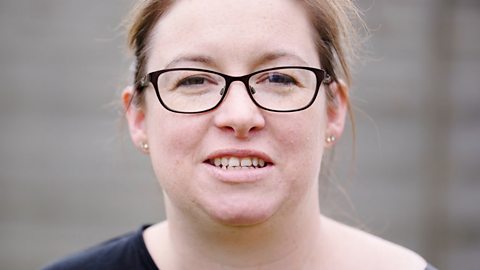
We asked Charlotte how she manages her studies while looking after a busy home. Watch the video to find out how she gets useful sources for her academic assignments – while making sure her children are ready for school and all her animals are fed
To do
While you watch, listen for Charlotte's advice about SEARCHING for information, HIGHLIGHTING texts and REFERENCING correctly. We'll give you the answers – in an infographic – later on this page.
User tips
- Turn on subtitles by clicking on the 'S' button in the video player.
- Click on the 'expand' icon to view the video in full screen.
Watch the video

Charlotte
I'm a writer. I always have a story in me. I would feel like I was missing a limb if I didn't write.
I'm married; I've got two children: one daughter who's about to turn ten, and my son who's eight, and I live in a house full of animals.
I like writing because it works round me and I can do it when I want to. It works round the children as well so if they're at home in the evening, I don't write. I think routine's quite important. I get up about half past six, seven o'clock, get the kids up and fed, get them to school, come back, have a cup of tea, take the dog for a walk, stick the washing on the line.
I actually started doing my degree about ten years ago when I was pregnant with my daughter, but through a problematic pregnancy I sort of shoved it to one side for a bit, and came back to it about three years ago.
The last assignment was discussing the prominence of the English language and the resistance of the prominence of English language. We had to use an academic text. I did do a lot of searching on the university website. They have a library that lists all the approved academic texts, but I did do a lot of Googling. Finding the academic text was the hardest part of finding source material. So I found two or three that I thought would be quite good and I read each text about two or three times and highlighted the bits that I thought might be useful and then decided which one would have the most highlighter on it: I used that one. I ended up with far too much stuff: it was quite difficult actually trying to condense it down to within the word count.
I did use paraphrasing, summarising and quoting throughout my essay. There were times when it was just easier to quote – you'd come across something that – yeah, that's exactly what I want to say and there is no other way to say it.
When I first started doing my degree, I really struggled with referencing. By last year though I had found a guide to Harvard referencing, and every time I was trying to reference, I went back to that guide to make sure that it was done in the correct order.
I think I have got better at finding source material. I now know which sources are unreliable and which sources are reliable. If you're struggling to find source material, don't panic. There's plenty of stuff out there. The books that my university gave me were really comprehensive – everything I needed was in there. My advice to anyone who's struggling to quote, paraphrase or summarise is just speak to your tutor. If in doubt, leave it out.
I think I've always written short stories for friends, but it's only been in the past sort of five or six years that I actually wanted to make it a career, and then when I was pregnant with my daughter I sort of had the time to sit down and decide what I really wanted to do: writing, so English courses sort of seemed to be the next natural step.
I've got one more year left to do with university. I'm still playing with the idea of then doing a Masters' or maybe doing my PGCE. I do love learning, I do love learning a new skill, a new language, anything really.
Go the distance.
Three tips for finding academic sources
Charlotte had three tips for finding sources about SEARCHING, HIGHLIGHTING and REFERENCING. Did you sport them all? Check your answers with this activity.
Three tips for finding and using academic sources
3 Questions
Click on the images to identify the three tips Charlotte had for working with academic sources
Help
Activity
Click on the images to identify the three tips Charlotte had for working with academic sources
Hint
Charlotte said: "I did do a lot of searching on the university website. They have a library that lists all the approved academic texts, but I did do a lot of Googling."Question 1 of 3
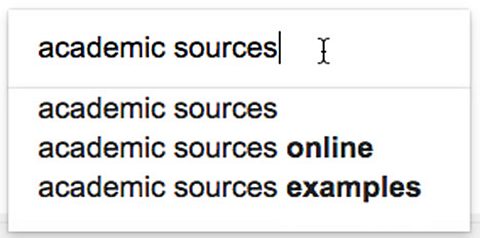
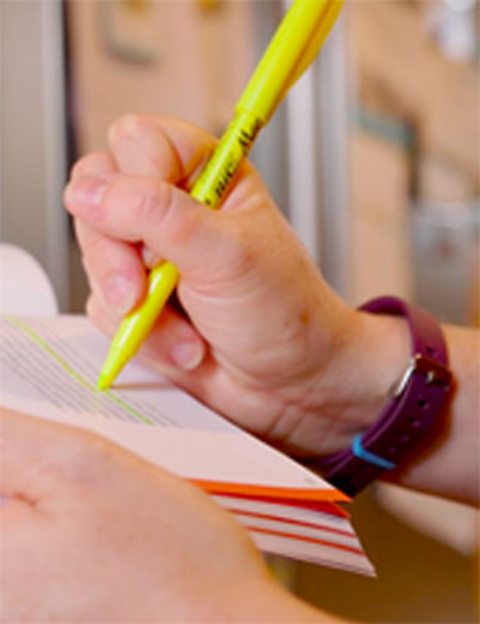
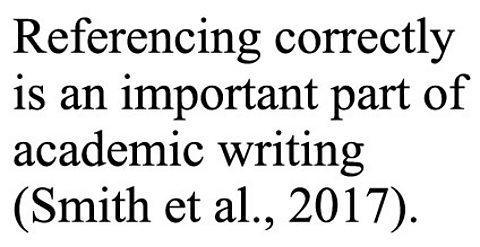
Help
Activity
Click on the images to identify the three tips Charlotte had for working with academic sources
Hint
Charlotte said "I found two or three that I thought would be quite good and I read each text about two or three times and highlighted the bits that I thought might be useful and then decided which one would have the most highlighter on it: I used that one."Question 2 of 3



Help
Activity
Click on the images to identify the three tips Charlotte had for working with academic sources
Hint
Charlotte said "I did use paraphrasing, summarising and quoting throughout my essay. There were times when it was just easier to quote – you'd come across something that – yeah, that's exactly what I want to say and there is no other way to say it."Question 3 of 3



Excellent! Great job! Bad luck! You scored:
What we've learned
You've nearly reached the end of this unit. At the bottom of this page you can find links to more useful materials for distance learners – and would-be distance learners!
But before we finish, let's take another look at Charlotte's tips for finding and using academic sources successfully.
- Check your academic institution's website – they usually have a list of approved academic texts you can use as sources for your assignments.
- Search online for sources – use an academic search engine like Google Scholar or RefSeek.
- Read source texts and, if possible, highlight the parts you think are important. This can help you decide which texts are going to be most useful.
- Include references in your writing – you can paraphrase, summarise and quote sources you have used in your assignments.
- If you're not sure if a source is reliable, ask your tutor. If you're really in doubt, leave it out!
Find out more
Want to know more about Charlotte and her distance learning experience? You can find out more by visiting our partner The Open University. Click on The OU 'Where next?' link to find out more.
Where next?
Session Vocabulary
Find out more about distance learning – visit our partner,The OU

